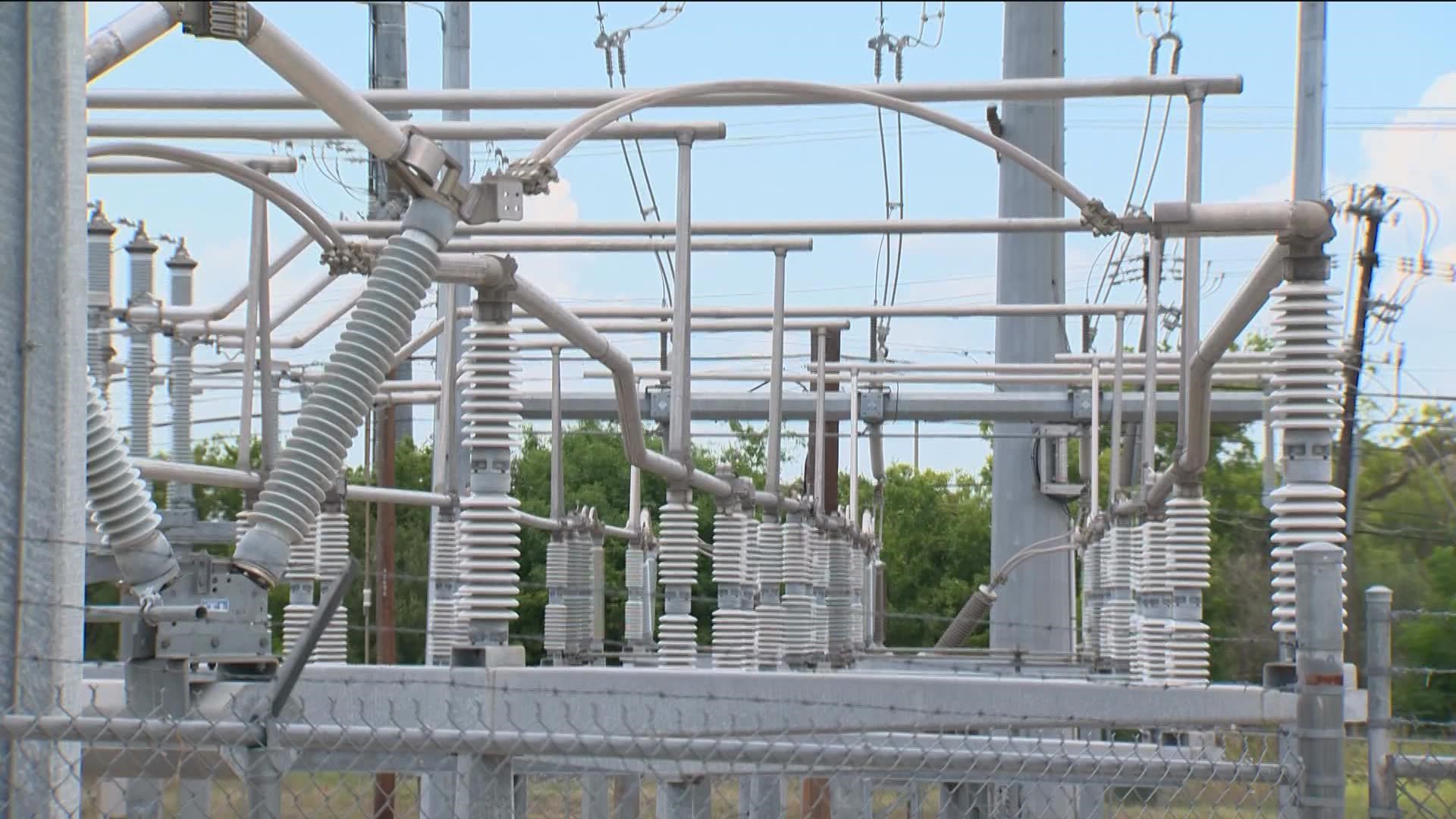AUSTIN, Texas — Texas broke a new record for power demand on Monday, surpassing the previous record set on Friday. According to an Energy Reliability Council of Texas (ERCOT) spokesperson, peak demand reached 78,264 megawatts on Monday.
"Between 1:56 p.m. and 2 p.m., we saw customers take action and nearly 500 megawatts of load dropped off. Reminder, we asked for voluntary conservation starting at 2 p.m." the spokesperson said.
"People shouldn't be asked just to conserve for the sake of the grid," said Alison Silverstein, a Texas energy consultant. "If we are asked to make contributions and change our behavior or contribute our car or household batteries, or our household comfort level to help the grid, hey, [the government] should maybe pay me for that inconvenience and contribution the same way [the government pays] a power plant."
Silverstein worked as an advisor to the Public Utilities commissioner in the late 1990s during the restructuring of ERCOT, then continued on to work at the Federal Energy Regulatory Commission from 2001 to 2004. Since then, she has worked as a consultant in the energy sector on ways to improve the Texas grid and its reliability.
"In the late 1990s, it was already clear that every summer was hotter than the summer before and that the weather patterns were changing, but it wasn't something a lot of people talked about," Silverstein said. "We had a habit of reliability based on a lot of investments and a lot of relatively unchanging technology in economics. So it never occurred to anyone in the '90s that the entire nature of the economics and technology of how we operate a grid could change massively over the next 30 years. We assumed we could keep doing the things we had always done and the grid would keep working."
Now, Silverstein pushes Texas leaders to not just increase supply, but incentivize lowering demand.
"On the demand side, we need more weatherization and more efficient appliances: air conditioning, heating, heat pumps and automated thermostats and control mechanisms so that people can keep cold air or hot air in their homes longer without using as much electricity," Silverstein said. "We have the ability to start shaping demand, to meet supply where it is, instead of overbuilding so much on supply and then using it to chase demand."
Silverstein continued discussing the idea of energy efficiency, putting surplus energy back into the grid: energy from electric vehicles, personal solar panels or batteries like the Tesla Powerwall, for example.
Doug Lewin, president of Stoic Energy, agrees efficiency is the key to a more reliable grid.
"Energy efficiency is something we really need to focus on in the state to bring that demand down, to increase reliability and very importantly in this conversation, to help people with their energy bills," Lewin said.
Lewin and Silverstein both call that concept "demand response" for residential energy consumers.
"Very large users have a lot of options for demand response. There are virtually none on the residential side, and that is a real oversight and problem and puts us at risk," Lewin said. "So what that might be would be a program where somebody gets paid a few dollars to have their pool pump cycled so that their pool pump is not operating. But, you know, they're calling for conservation today between 2 p.m. and 8 p.m., and yet all of the pool pumps in the state could still be operating between 2 p.m. and 8 p.m. when they could run overnight. There's no reason for that."
Silverstein also discussed how the demand and threat to the grid during the summer differed from the demand and threat to the grid during Winter Storm Uri.
"We lost generation due to lack of fuel and coal plants freezing up, natural gas pipes getting turned off and and gas freezing in the field, as it were. And then we had power plants freezing up and breaking due to actual cold affecting the equipment. When we lost both fuel and power plants at that level, it took several days to get them back," Silverstein recounted. "On the demand side is that it just never got warm so that houses that got very cold couldn't be heated up quickly. If we have an outage today, this afternoon or in August, it's going to be very short-term. And the reasons going to be very short-term is because if it's 110 this afternoon, it'll get back down to 88, 80 degrees, 70 degrees tonight. Probably not 70, but it'll get back down and the plants will have time to cool off and the houses will have time to cool off. So there will be a reset in a few hours."
PEOPLE ARE ALSO READING:

